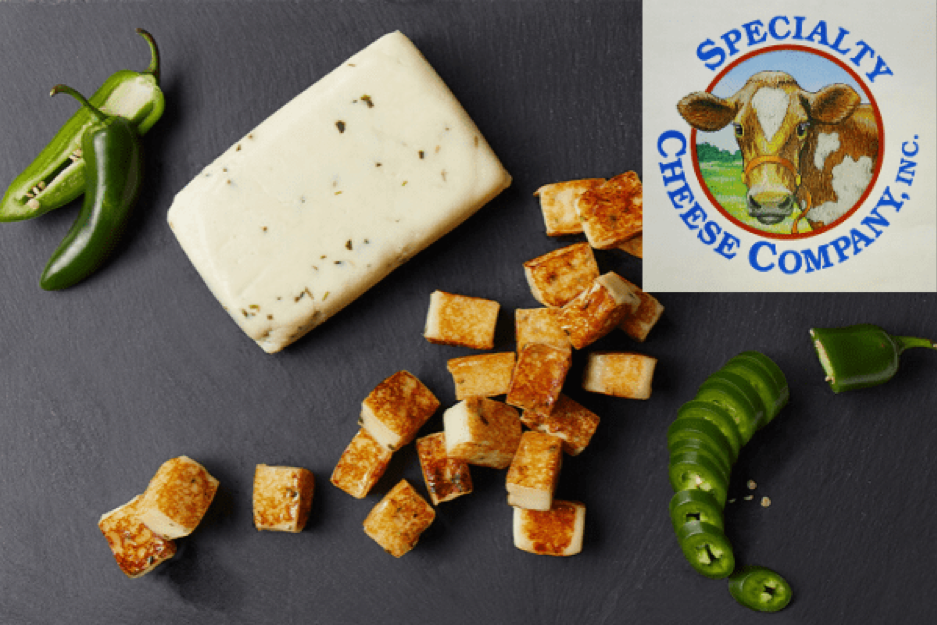Subscribe: Apple Podcasts | Spotify | Amazon Music | iHeartRadio | RSS | More
| In Edible-Alpha® podcast #58, Tera speaks with Paul Scharfman, president of Specialty Cheese Company in Reeseville, Wisconsin, known for its Hispanic and other ethnic cheeses. Since purchasing five small cheese factories in 1991, Paul has grown the business exponentially, increasing sales annually and employing 250 workers.
Three decades ago, queso fresco, asadero and cotija cheeses weren’t obvious choices for cheesemakers, but Paul knew demand for these varieties was growing. Food scientists helped his team hone their Hispanic cheesemaking chops, and soon they were turning Wisconsin cow’s milk into in-demand ethnic cheeses. But in the meantime, Dodge County was losing residents to urban centers and small dairy farms were dwindling. Then when Reeseville High School closed, it decimated the town and sunk the community’s spirit. Specialty Cheese purchased the vacant school and transformed it into a modern processing and packaging facility, which fueled growth and necessitated hiring more and more workers. But in a town of less than 700 people—and with recent unemployment rates so low—attracting candidates proved challenging. Inspired by their empathy-driven “soft management” training, the management team began looking for workers who’d been unemployed. Many businesses would steer clear of these folks, assuming they were flawed or unwilling to work. But the truth was many Dodge County residents couldn’t work due to lack of child care, elder care or transportation. To solve the transportation issue, Specialty Cheese launched a rideshare program called Getting to Work. The company hires drivers to ferry employees from all over Dodge County and beyond to and from the Reeseville facility 24/7 for a small fee. Today, about 75 employees use this service, and a new childcare program is in development to allow even more people to work. Specialty Cheese also sponsors an annual art and music festival, which Paul hopes will attract young professionals to the area. Next, Paul and Tera discussed the untapped business opportunities in rural areas nationwide and how seizing upon them can revive communities both economically and culturally. Rural regions have plenty of land fit for agriculture, and since consumers today want to know who makes their food, small farmers and artisan food makers have a hungry market—which they can now access directly through ecommerce. Using sites like Amazon, entrepreneurs can bypass distributors and retailers and build “multimillion-dollar businesses based in rural nowheresville,” Paul said. America might be shocked to learn how many untapped food and agriculture business opportunities await in rural areas. Forward-thinking farmers and artisan food makers can start something special—and lucrative—from anywhere and, in turn, help revitalize their communities.
|

